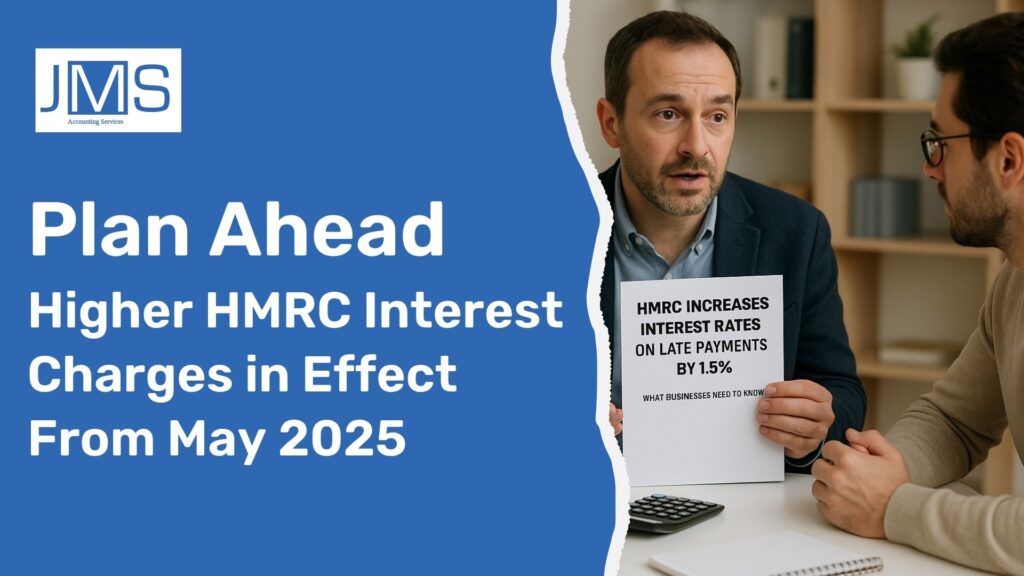Plan Ahead: Higher HMRC Interest Charges in Effect From May 2025

In a move that has caught the attention of many UK businesses and taxpayers, Her Majesty’s Revenue and Customs (HMRC) has announced an increase in the interest rates applied to late payments. Effective immediately, the interest rate on overdue amounts has been raised by 1.5%. This change underscores the government’s aim to encourage timely payments and maintain fiscal discipline. What Has Changed? Previously, the interest rate for late payments was set at a certain baseline (for example, 3.0%). With the recent adjustment, the new rate has risen to 4.5%. This means that any outstanding tax liabilities, VAT, or other dues that are not settled by their due date will accrue interest at this higher rate. Why Did HMRC Increase the Interest Rate? The primary motivation behind this increase is to: Encourage prompt payment: Higher interest rates serve as a deterrent against late payments, helping HMRC improve cash flow and reduce the administrative burden associated with chasing overdue accounts. Align with economic conditions: The rate change may reflect broader economic factors, such as inflation or changes in the Bank of England base rate, which influence borrowing costs and financial discipline. Impact on Businesses For businesses and individuals, this change has several implications: Higher costs for overdue payments:Late payment penalties will now accrue more interest, increasing the total amount owed if payments are not made on time. Cash flow considerations: Companies may need to reassess their cash flow management strategies to avoid penalties and additional interest charges. Incentive for timely filing and payment: The increased rate underscores the importance of adhering to deadlines for submitting tax returns and making payments. Practical Tips for Businesses Review payment schedules: Ensure all tax liabilities are scheduled and paid well before the due date. Set up reminders: Use calendar alerts or accounting software to track upcoming deadlines. Maintain accurate records: Keep detailed records of payments made and correspondence with HMRC. Seek professional advice: If uncertain about payment obligations or facing cash flow issues, consult a tax advisor or accountant. Conclusion HMRC’s decision to increase interest rates on late payments by 1.5% highlights the importance of timely tax compliance. While the higher rates may seem burdensome, they serve as a reminder for businesses to prioritize punctual payments, helping to avoid unnecessary costs and potential penalties. Staying proactive and organized can mitigate the impact of these changes and ensure smooth financial operations. Stay informed and plan ahead to keep your business compliant and financially healthy.